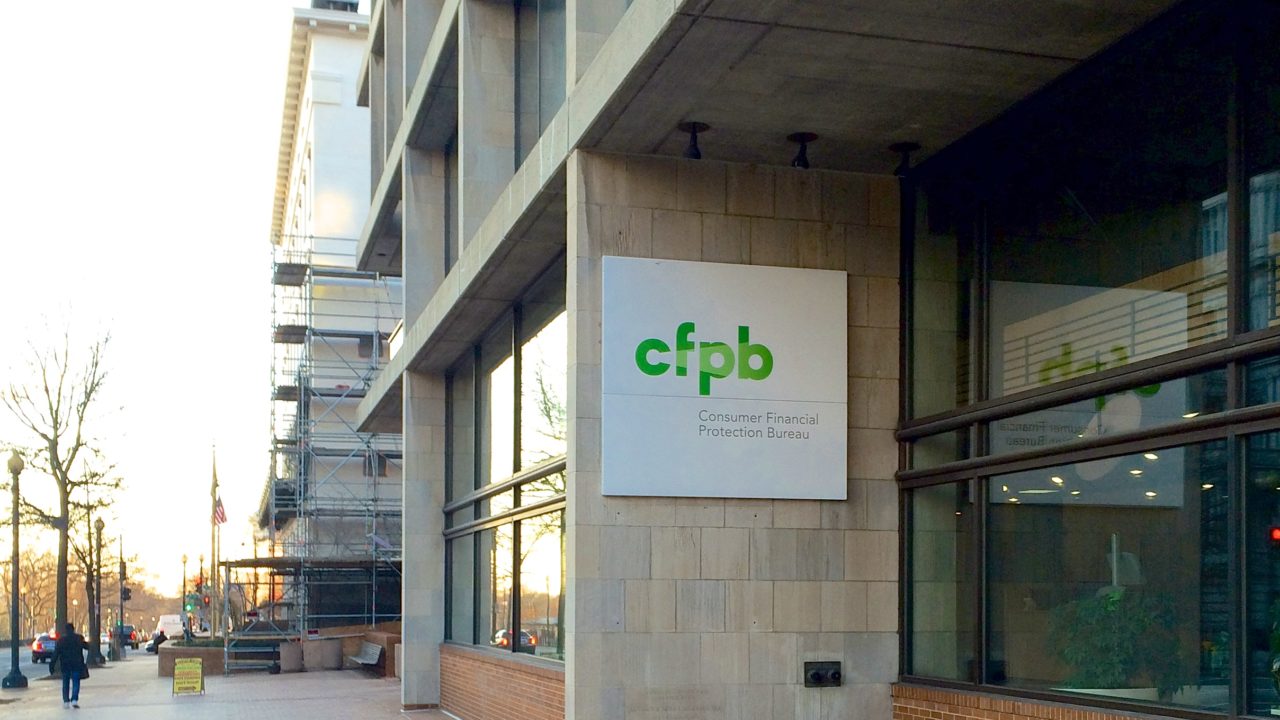 "Exterior of the Consumer Financial Protection Bureau, Washington, DC USA" by Ted Eytan is licensed under CC BY-SA 2.0
https://www.flickr.com/photos/taedc/12140572964/in/photolist-juPBnw-Hcn5hz-27tW8Tz-22bodWs-owMx7x-DQT5DS-2kHWSpE-qs2kbt-r7myZa-r5u9gg-H3bp1Z-Z8SaQA-DSdyk9-a5w6qY-H3bpje-21YKSVx-DQT5xQ-a5wjYu-H3boJ6-bUayuR-2iAqYMx-kfjifp-21T4Ppq-21VVay2-21QXPGs-eiMeAM-aJgU
"Exterior of the Consumer Financial Protection Bureau, Washington, DC USA" by Ted Eytan is licensed under CC BY-SA 2.0
https://www.flickr.com/photos/taedc/12140572964/in/photolist-juPBnw-Hcn5hz-27tW8Tz-22bodWs-owMx7x-DQT5DS-2kHWSpE-qs2kbt-r7myZa-r5u9gg-H3bp1Z-Z8SaQA-DSdyk9-a5w6qY-H3bpje-21YKSVx-DQT5xQ-a5wjYu-H3boJ6-bUayuR-2iAqYMx-kfjifp-21T4Ppq-21VVay2-21QXPGs-eiMeAM-aJgU
In an op-ed published in The Hill last week, ATR Federal Affairs Manager Bryan Bashur wrote about a rulemaking issued by the Consumer Financial Protection Bureau (CFPB), which would significantly increase data collection and reporting requirements for financial institutions.
Section 1071 of the Dodd-Frank Wall Street Reform and Consumer Protection Act required the CFPB to issue a rulemaking that would compel financial institutions to collect personal data from small businesses that submit loan applications and report it to the federal government.
If finalized in its current form, the CFPB’s rule would mandate the collection of a laundry list of personal information from small businesses. As Bashur highlights:
The CFPB wants to make business decisions for banks, credit unions and financial technology companies. Section 1071 directs financial institutions to collect data on small businesses that apply for a loan. Specifically, the financial institutions must disclose data to the CFPB, such as the sex, race and ethnicity of the loan applicant, the amount of the credit transaction, the gross annual revenue of the business and the census tract in which the business is located.
Ostensibly, this information would be used to target lending discrimination toward minority-owned and women-owned small businesses. While this is an admirable goal, the proposal falls short. As Bashur points out:
The CFPB will likely use the data it collects as a precursor to issuing future regulations that will force financial institutions to only lend to certain small businesses without considering risk factors. If financial institutions are unable to take risks into account when deciding whether to extend credit, they will likely decide to withhold all credit.
The CFPB’s rule will not enable increased credit access to minority-owned and women-owned small businesses. Instead, capital will dry up and no credit will make its way to traditionally under-capitalized businesses. In 2017, the Treasury Department published a report on financial regulation in the United States and recommended repealing section 1071 outright.
The rule will exacerbate the issue that it is trying to solve.
The federal government should promote deregulation to help unleash capital for small businesses. Unfortunately, this CFPB proposal will only increase government intervention into private business activities between lenders and borrowers. As Bashur explains:
Ensuring all small businesses have access to capital is vital for the sustainment of a strong American economy. However, it is wrong to assume that the federal government will know what financing decisions should be made between a private lender and a private borrower. The CFPB should let financial institutions do their job and continue to make risk-based financing decisions. This both allows capital to flow to businesses with successful businesses models and ensures that credit can continue to flow.
COVID-19 has been detrimental for small businesses. The last thing small businesses need is for the CFPB to intervene in private contracts that are distortive and may end up promoting discrimination instead of ending it.
Click here to read the full op-ed.

